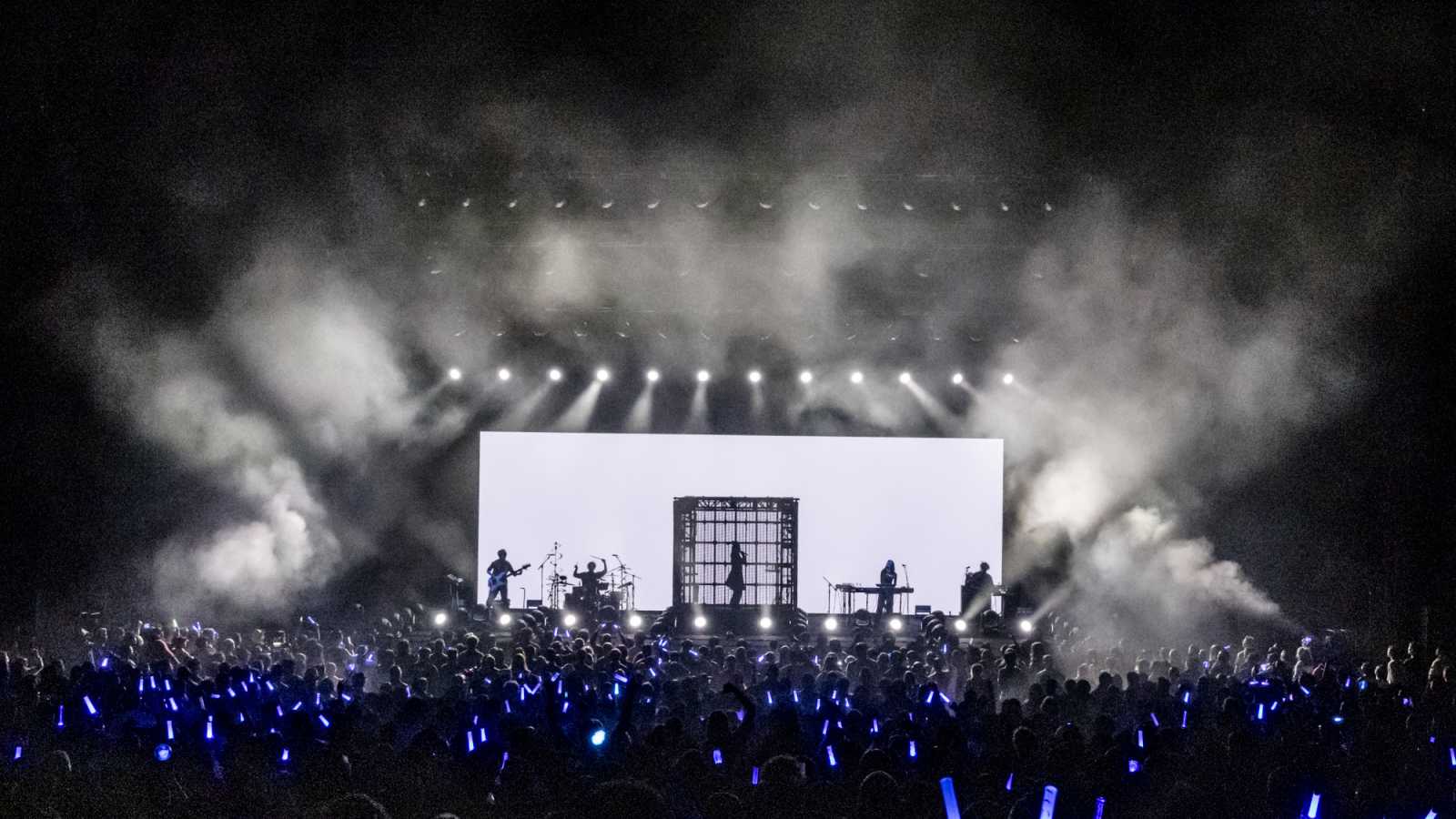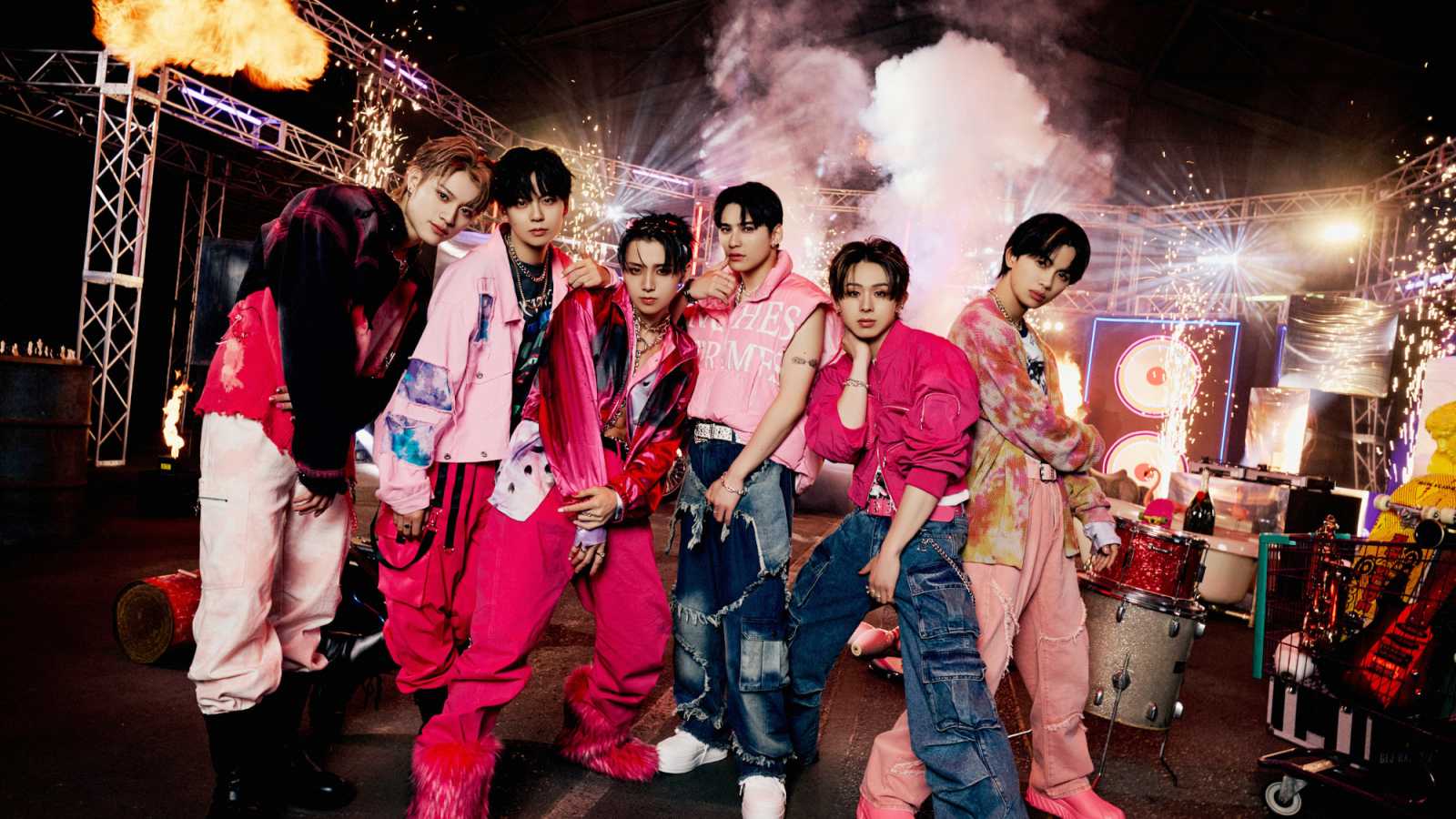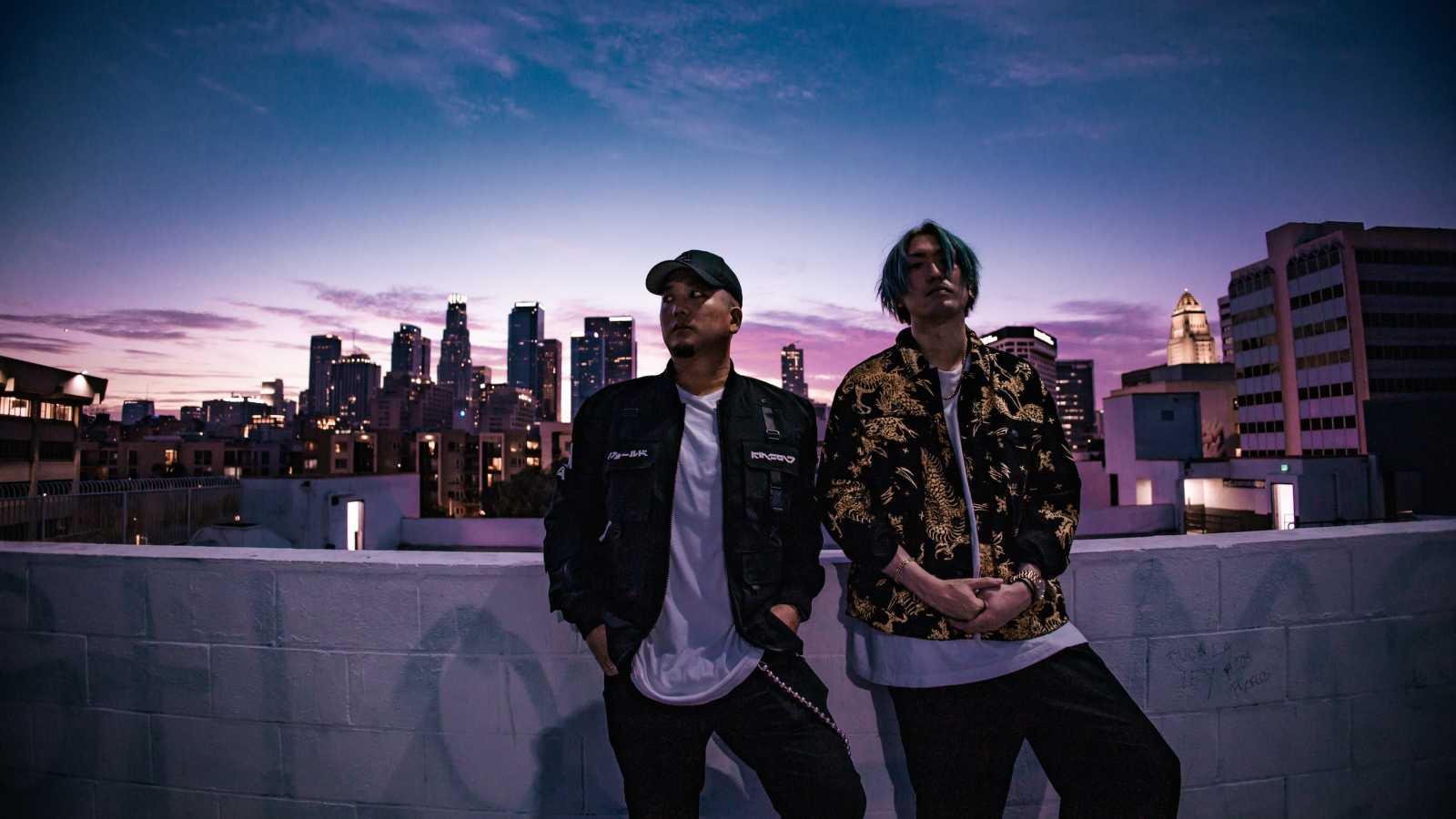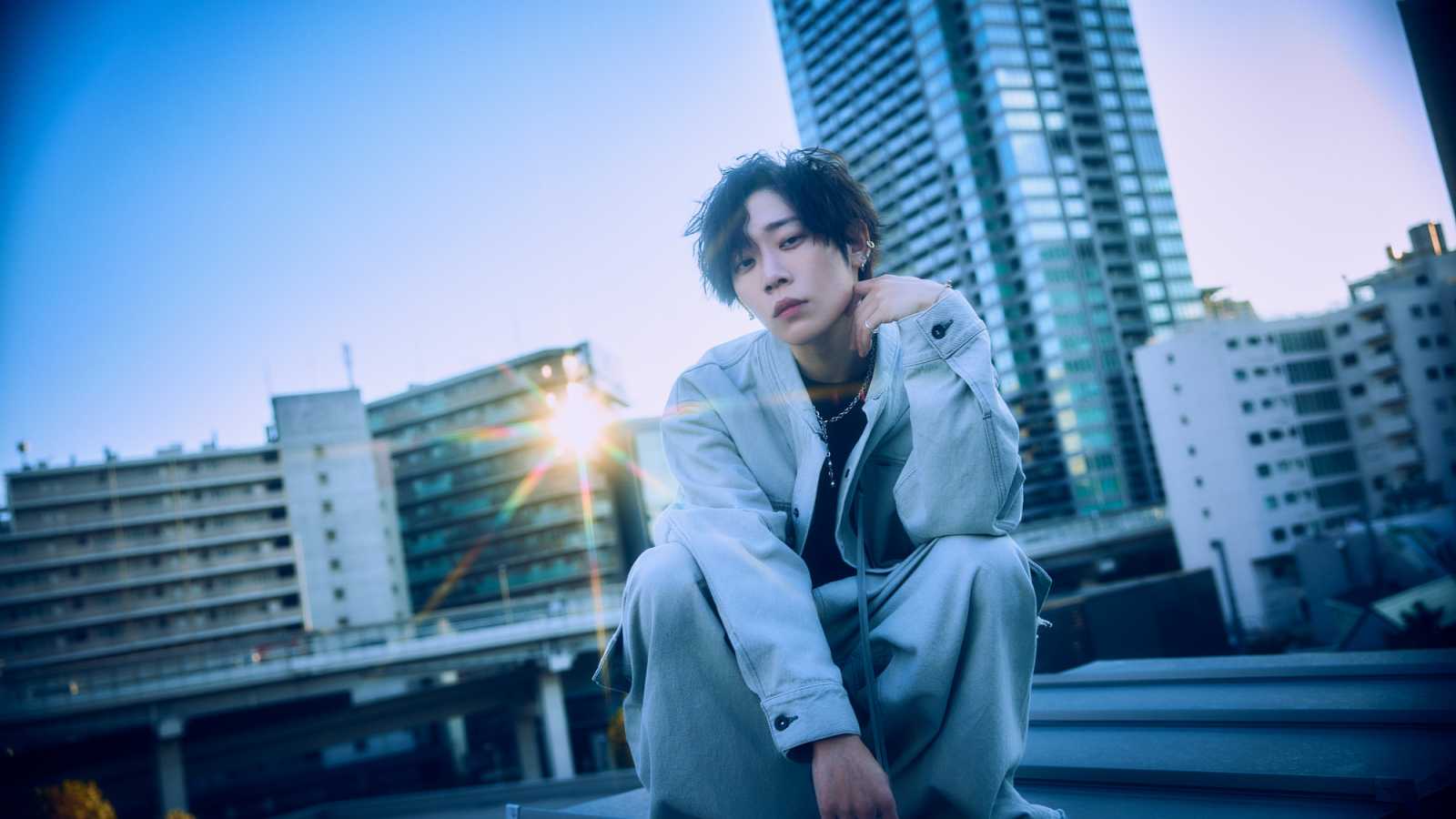JaME interviewed Ohyama, trumpetist of the Jazz band PEZ in Japan.
How did the band members of PE'Z meet each other?
Ohyama: When I was a university student, One of my classmates had many friends and among them were the future members of PEZ. I chose members based on performance and personality.
So you met the members at your university, didnt you?
Ohyama: Yes, we met each other at university, but we made a band later. I was studying at a Music University, so my friends were mostly musicians.
Did you play music before you were a university student?
Ohyama: I have played the trumpet since I was an elementary school student. In university, there was a club and we made various bands there.
In the group, did you play jazz?
Ohyama: Not only jazz. Actually, my band played pop with a vocalist.
You are not like other jazz or rock groups. How would you describe your music?
Ohyama: We have many songs based on jazz, but our focus for the band is not jazz, but jazz style pop band. Even we have no vocals.(laugh)
What kinds of musical background do you have?
Ohyama: Its totally different for each member.(laugh) I started playing trumpet after I went to see a jazz festival with my family when I was 7 years old.
You started trumpet at only 7 years old, which is so cool for such young age!
Ohyama: Well, At that time, there were 2 big jazz festivals in Japan; one is Mount Fuji Jazz Festival, and the other is New Port Jazz Festival in Madarao. Mount Fuji Jazz Festival is sponsored by Blue Note, so its mostly orthodox jazz, having old famous jazz musicians. On the other hand, New Port Jazz Festival in Madarao is not only jazz, but also fusion music, blues such as B.B.King, which has various styles of music like jazz.
I went to see the New Port Jazz Festival in Madarao, when I was a child and after seeing various showy stages, I knew I wanted to play the trumpet! Although I had a musical base of jazz, I was an ordinary Japanese child, so I was listening to idol songs, popular songs, and J-POP, mostly. But I always liked jazz since my childhood, which is the music of PEZ. I grew up as an ordinary Japanese boy, listening to main stream music containing some jazz, then all of this was jumbled up to become the music of PEZ.
The other members are also like that?
Ohyama: I think so. For example, keyboardist; Hiizumi, has been playing piano since childhood, so he has had many opportunities to listen to various kinds of music. He played classical music and got tired of it, then he started jazz in junior high school. We all have done other genres. Drummer; Kou started to listen to jazz after he joined PEZ.(laugh)
Really!? What kind of music did he originally do?
Ohyama: He didnt play jazz, but played behind a vocalist.
How about bassist; Nirehara?
Ohyama: He started to play bass after he became a university student. Before that, he had been playing electric bass, and I heard he liked Guns N' Roses.(laugh) In university, he belonged to a jazz workshop and played jazz, so he has the most experience of jazz playing, I think.
PEZ was made by gathering members who have different music backgrounds, wasnt it?
Ohyama: Yes. Basically, we were not like other band members who loved Southern All Stars which was popular in my high school age, nor members who loved THE ROLLING STONES who gathered to make a band like that. In our case, we, 5 members, gathered to make something new and started from zero, instead of having an ideal music.
PEZ was made in 1999, and Major debuted after 3 years. You became major really fast. Could you tell us more about this evolution? Has it changed you?
Ohyama: As Major artists, its sometimes hard for us, but our activities became more stimulative, and we can do different things everyday, which makes us happy. We want to stand out more, being more famous, to have more stimulation. We made this band when I was 25-6 years old, being pretty old(laugh), so we have been working very smartly, I think. We thought about everything practically and we didnt do anything we didnt need to do.
You all formed the band after joining normal working society?
Ohyama: Kou was a professional drummer, and I worked as a trumpeter. The other 3 members were students, and they debuted as PEZ (laugh), so they didnt have much trouble. Well, drummer; Kou and I had many difficulties before.(laugh)
Where do your nicknames come from such as Samurai Jazz Warriors for the group and BMW, JAW and HZM for each member?
Ohyama: In Japan, we were called Samurai Jazz Band generally, but in English, does it become Samurai Jazz Warriors? Well, its cool. I love it.(laugh)
Did you name yourselves Samurai Jazz Band?
Ohyama: No, we were just called that. When we first made PEZ, making CDs one by one, since around our 2nd CD, our concept became Japanese in style, for example, our costumes are like Kimono, the designs of our album jackets are Japanese paintings. We were called Samurai Jazz around that time. The title of this album is [Nippon no Jazz -SAMURAI SPIRIT-], which means jazz played by Japanese, then named Samurai Jazz, I think.
How about each members nicknames?
Ohyama: HzM comes from his name; Hiizumimasayu-Ki. BMW is from my name; Ohyama Wataru, because the Japanese character of Ohyama means Big Mountain in English, then BM for short, and add W of Wataru. JAW is for Kadota and the meaning is jaw, because his chin juts out.(laugh)
Oh, no! Kadota is cool.
Ohyama: Well, his nature and appearance is so, but
.(laugh)
How did you choose the old songs you wanted to play on your album [Nippon no Jazz -SAMURAI SPIRIT-]?
Ohyama: We went to Holland and England last autumn, and to U.S.A in this March, for lives. During overseas live shows, we were able to see ourselves more clearly, which was our prompt to make this album. The music of PEZ, especially our melodies, was affected not only by jazz, but also by Japanese popular songs, folk songs, and nursery songs. Our advantage is Japanese melodies, and we felt about it strongly during lives in U.S.A and Europe. After we came back to Japan, we wanted to play old Japanese songs, and we thought we wanted to arrange them in our own way, and show them to the people in the world. We chose songs with an awareness of Japanese melodies, as a result, there were many old songs.
How many songs did you choose from?
Ohyama: If we really listed up all our ideas, it would be several hundred songs. Our first ideas were for example, Well play a song of Kyu Sakamoto!, and selected the musicians, so the number of songs decreased. It was rather hard to find, and we couldnt find many songs which we really wanted to play, and even it seemed we lacked songs.
The album includes enka, movie music, nursery songs, and the selection is so variable. Do you intended to select many kinds of music?
Ohyama: Yes. Not only genre, but also good melodies should be first. We put those songs into one album, so we definitely wanted to choose enka as representative of Japanese songs, and also movie music of Akira Kurosawa who is a great master of Japanese movies.
Did you make an effort on the arrangement to feature each song?
Ohyama: Yes. The title is [Nippon no Jazz -SAMURAI SPIRIT-], so we did some arrangement thinking about our own jazz as PEZ. We chose 12 songs so we tried to make 12 kinds of jazz, concentrating on each song, and trying not to repeat the same style.
Its interesting to compare them with the original songs.
Ohyama: I think so. The lines between the original songs and our arranged ones are very difficult. I didnt want to arrange songs without respect for the originals. Its easy to go away from the original tunes, so it was very difficult to get the balance we wanted.
For example, the arrangement of Kiyohiko Ozakis song [Mata Au Hi made] is quite different from the original song. When people listen to the title of this song, they are sure to remember the intro melodies of the trumpet.
Ohyama: Thats the difficult point! The moment when the intro of trumpet starts, the expected image should be Kiyohiko Ozaki. The melody of this song is very good and I respect the melody, so if the intro of horns comes first, it would make it hard to play the following melody with the trumpet. Its contrary to everyones expectations and I dont want to disappoint them, which is very difficult.
How did the idea of the remix album [PE'Z Color Album VOL.1] come? Does [VOL.1] mean there will be another remix album?
Ohyama: [VOL. 1] means the first one among us, and we usually name [VOL.1] at first which have infinite possibility such as remix albums, because we hope to make next one. About the idea of remix, one of the musical back grounds of PEZ, was club sound music which DJs make. I was so influenced by them a lot,so I was very interested in how they remake our songs. I asked DJs who we have connections with, and who use PEZ songs a lot. They remixed our music very well, so I was very happy. I listened to it, which inspired us to make more music.
How was the collaboration with the artists (FANTASTIC PLASTIC MACHINE, Ryota Nozalo from Jazztronik, etc.) who has participated in this album?
Ohyama: When FANTASTIC PLASTIC MACHINE said that they were going to remix our songs, I was very happy, because we were especially affected by FANTASTIC PLASTIC MACHINE and UFO (=United Future Organization), when we just made PEZ far before making our Indies CDs. We were very influenced by these 2 groups.
About the composition, how did you organize yourself? We could see this is more the work of Ohyama Wataru and Hiizumimasayu-Ki.
Ohyama: I have been the leader since we made the band, and I did actually make the band, so I composed alone at first. masayu-Ki also has a good sense of composition, but he wasnt going to join composition at that time. We decided to compose something, then we brought songs to each other. Sometimes I would have more music when masayu-Ki was in bad condition, and sometimes he would have more when I was in bad condition, but we wanted to contribute equally. About compositions, we do it completely by our personal sense. As for arrangement, we make a conscious effort on the PEZ sound, when members go far from it, I fix it. About composition, we show 100 % of our personal originality.
How do you compose songs? Do you use computer and input?
Ohyama: I do also input, but basically I give scores to members.
Then members arrange them by their own instruments?
Ohyama: Well, thats quite difficult to explain, but when I give scores to members, all parts are completed perfectly. Then we actually perform and find something different, then we rearrange them to add members personal character more. As for composition, we dont mean just making melodies, but making all parts, arrangement, rhythm pattern, and everything for certain level from the beginning. But we need also a consensus as the bands sound, so we change a lot.
It's easy to see you have fun when you're playing. For example, with the song [Na!Na!Na!], the song is really crazy ! How did you write a song like this?
Ohyama: (laugh) Basically I like tricks. I make songs normally, but sometimes I want to do something far from normal. One of that is using masayu-Kis voice in many songs. I thought to make songs using his voice mainly, because I wanted to show his crazy eccentric part more. Well, it was just me fooling around.(laugh)
How do you choose the design of your album's cover?
Ohyama: In our Indies period, we released three CDs, and from the second album, we have worked with a design team. At first, they made our costumes making the concept to use Japanese fabric and its design effected by traditional Japanese clothes. Their sense of taste was very good and I asked them to design our album jacket, which was so cool and we asked them the design of all of our album jackets since then. We dont ask them how to design, but they listen to PEZ's music and get images from the sounds. We trust the designer best, and they make it every time.
They seem homely and make us yearn for home.
Ohyama: Yes. We are very happy they make great jackets every time. The original designs are coming from Japanese traditional pictures and materials, but the designers are people of today, so new senses are sure to be mixed into them.
This time, you worked with Nate James in [LIVE FOR THE GROOVE E.P]. Is this your first time to colloborate with vocalists?
Ohyama: Yes, this is the first time to make songs together. I wanted to do it always, but I havent had the good timing to have a chance to meet.
This time, you met your ideal singer, didnt you?
Ohyama: Yes, his musical sense and voice are excellent.
Did you feel any difficulty to communicate with him in English?
Ohyama: Well, we made it somehow, even if I cant speak English well. Especially, if its about music, nothing is difficult. In daily conversations, we cant joke with each other, but its no problem to make music together and to have interviews with him.
To work with him, did it bring you some advantages, did it affect you?
Ohyama: Yes, I think so. Since I was a child, I have been thinking that foreigners are good at body expression in conversations, showing how happy they are, because their gestures are so big. I thought that on the stage, we Japanese cant match them. He doesnt have slightest negative vibe in him. It might be because of Nate, but not only on stage but also in daily life, getting up in the morning, moving together, he seemed like he wont miss even 1 seconds happiness.(laugh)
He is so energetic! (laugh)
Ohyama: Well, he falls to sleep quickly (laugh), but he has a strong desire to do his best in Japan, so he is always on the go.(laugh)
When the members of PEZ go to overseas, are you like that?
Ohyama: Im just like that!(laugh) When we went on the U.S.A tour, after we finished our live at 1 oclock, we got together again at 3-4 oclock, then did the live. It was tiring, but I became more active day by day.(laugh) Like Philadelphia is the birthplace of my favorite jazz trumpeter! and I was excited, so I was very energetic all the time.
You are in rock and jazz festivals. Is it the same for you to play in front of those different crowds?
Ohyama: Yeah, we really rock! See, there is a game at the shopping centre where people put their hands into a box to grasp coins. When I play I image that I want to grasp as much of the audience as I can. Sometimes it can be difficult. There are big barriers in genres of Japanese music, for example, when we play in front of an audience which has many fans of young idol bands, we can grasp only about 5 fans among about 1000 people.(laugh) Its hard to grasp about 500 people from 1000 people. But we play again and again, and there are people who like our music when they hear it a 2nd time, so we go to Summer festivals every year, playing in front of many types of audiences, not only once but many times. Of course, we do our best every time.
Do you determine the live set list at the venue?
Ohyama: Usually we prepare for Summer festivals, but we often change it after we go to the venue and see the mood of a band before us. Actually at Summer festivals, the mood is very happy, and were very happy too. Other bands also play in a very good mood, so we dont need more. But Im just ambitious.(laugh)
Is there any difference between playing in open air and in halls?
Ohyama: Yes, its different. Live houses are not enjoyable like that, where there is no scenery and bad air.(laugh) and sealed off, so the audiences energy doesnt escape. When we play in open air, however the audience becomes wild, their energy is spread and the air is nice. But in live houses, the air from people which is called Ki in Japanese, seems to mix, which makes our minds muddy. But its fun to play, enjoying the feeling of sweating, working together.
Is there any difference in your mood between lives and recordings? Do you change easily?
Ohyama: Lives are easier, because the audience listens to our music directly and we can see their energy as it is. However, the audience is just in front of us and we have to pay attention never to be beaten by their Ki, which is difficult. In recording, we have to put something onto CD, so we must pay attention, so it can be tiring. Well, we can make easily if well do so(laugh), but I always feel like How can I put it more? and I cant see the answer easily nor read our future. Im a hotheaded man and want to show the results soon, but we have to wait, which is really hard for me. For example, after making our CD, we have to wait for 3 months until it will be released. I actually want show it that night.(laugh)
I saw your live DVD[PE'Z REALIVE 〜節 FUSHI〜@2005.9.21NHK HALL], in which you kept playing trumpet for such a long time. Isnt it hard physically?
Ohyama: Awfully hard!
I heard trumpeters damage their lips from working too hard.
Ohyama: I can imagine that. In my case, its not like 2 hours live is hard and 20 minutes live is easy, but even for 20 minutes live if my condition is bad it would be hard. I think my lips are not so delicate, because many lives made my lips stronger.
Is there anything you do to take care about your health condition in your daily life?
Ohyama: Im not doing special things for my trumpet playing, but I just pay attention when Im shaving. (laugh)
I heard some trumpeters even dont shave.
Qhyama: I do shave(laugh), but if I cut my lips, I would have pain when I blow trumpet.(laugh) And I dont eat hot foods before lives, because my lips sting.(laugh)
Do you practice everyday?
Ohyama: Yes. I do somehow. PEZ does so many rehearsals, we rehearse almost daily.
You have released some albums in Korea, Taiwan and Europe. What does this mean for you? Do you intend to have more international releases?
Ohyama: Honestly, we want to release our albums all over the world. As for Korea, we go there many times and hope to release them, as it close to Japan. About CDs, not only releasing CDs, but also we do lives and telling that our CDs are released. We do it again and again to publicize our CDs and let many people listen to our music. We want people in Korea, Europe, America to say PEZ is a good band., so we continue to work hard to reach this goal.
You have travelled a lot for concerts: 9 lives in USA and lots of in Asia. What is different to a live in Japan?
Ohyama: In Asia, we did lives 5-6 times in Korea, and I think the distance between Korea and Japan is closer now. But the U.S.A/Europe and Japan, its totally different, because we do lives where no one knows PEZ's sound, so our attitude is to play is different. Which is not like To entertain people who like PEZ., but like 'To make the people who dont know us at all to get to know our music., which makes our sound forcible. We play powerfully because we want to impress all the people there. I compare it to Makunouchi Bentou in Japanese, which is a Japanese variety box lunch, and were satisfied everything with one box, we do these kinds of lives in Europe and U.S.A. In Japan, we do lives making the colour in each live day by day, like Today is Chinese, and Today is Western food. (laugh)
Are you nervous before lives?
Ohyama: No, not at all. Of course, Im tense a bit, but there is no reason to freeze up. I always fight it, and do lives like I wont go home until I give my everything.(laugh) Especially, when I do lives in U.S.A in March, I was so happy to be able to do lives in America that I didnt have the slightest tension. Before that, when I went to England and The Netherlands in Europe, I was also like that then.
How was the reaction of the audience?
Ohyama: I think it was good. But once isnt enough. The response was great, but so-what? Did they want to buy our CDs? No, I dont think everyone wanted to. We have to go again and again, until the number of people who have our CDs at home saying I like this increase. We were happy to do lives in U.S.A, but just this is not enough. We want people to like our music, so we have to go many times.
Do you plan to come in Europe again?
Ohyama: I hope so!(laugh)
What will be your next release? Will you take some rest or continue in a live tour?
Ohyama: I dont know when the next release will be, but well continue to make songs
..honestly speaking, I feel like taking half a year rest, and also I want to have a long vacation. But if we do so, we might be forgotten.(laugh), so actually we cant take a rest.
What is your next goal for the future?
Ohyama: As a human, I might have a future goal, but I cant see it yet. Like in a bike race which takes 10 days, each day has a goal. Thats the same for me, and I have a goal each day. Which is subdivided more and more, for example, I see the goal to finish this interview well at this moment. As for PEZ, now we see the goal which we want to finish the coming Autumn tour well, then we will be able to see the next goal. As you see, Im a kind of picky. If I cant do my best, then I try harder next time. And that repeats itself over and over and over again.
Finally, please give your message to foreign PEZ fans.
Ohyama: From last Autumn, we were able to go lives in Europe and U.S.A, and we want to go lives more and more from now on. We really hope you come to our lives. And please tell your friends about us!




